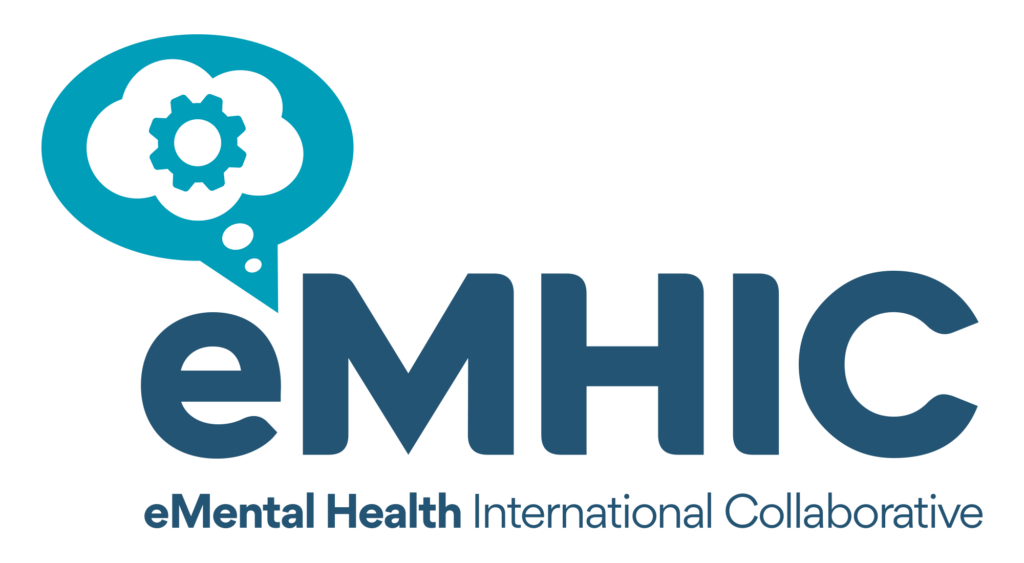This article originally appeared on Med-Tech Health Innovation News – click here to see.
Dr Derek Richards, SilverCloud Health’s chief scientific officer, discusses the rise of ‘stealth science’ alongside his recent research on evidence- based frameworks in mental health apps.
The COVID-19 pandemic triggered an unprecedented rise in the number of people globally in need of mental health services. The current scale of need is at levels which constitute a pandemic. No country has the human resource capacity to meet the current mental health need; therefore, turning to digital solutions to deliver care is becoming a requirement. Digital Mental Health Interventions (DMHI) deliver in terms of both accessibility and affordability, offering patients real, tangible clinical benefits. However, it is important to be mindful that not all online mental health apps and platforms are backed with the same level of clinical validation.
Digital mental health platforms and programmes such as those designed by SilverCloud Health (NHS’s prime provider or digital mental health solutions) offer evidence-based treatments shown to be as effective as face-to-face delivery (Andersson et al, 2013). SilverCloud DMHIs are evidenced to provide clinical benefits post-treatment and to maintain these benefits in the long term (Richards et al., 2020, Palacios et al., 2022; Eilert et al., 2022). Many individuals report a preference for the convenience and ease of access, as well as the relative anonymity that internet-delivered services can offer (e.g. Boydell et al, 2014).
Several global phenomena have contributed to the dramatic surge in digital mental health solutions
The demand-supply discrepancy in mental health care is widely recognised, often known as the treatment gap (Kohn, et al., 2004). Mental health care is an area calling out for innovative approaches to service delivery. Consistent with this, venture capital (VC) companies have in turn been pursuing digital mental health and wellness-oriented technologies with interest. A record-breaking $5.1 billion has been invested in mental health start-ups in 2021 by the VC industry – a fourfold increase when compared to 2019, and a tenfold increase since 2017 (Rock Health, Jan 2022).
With investment in digital mental health on the rise, there is a sense of optimism about current and future prospects in the field. The promising picture is reinforced by recent global phenomena, which cluster around three trends:
1) Increasingly Mental health has broken through the taboos that once kept it locked away, and now there are open conversations around mental health and the need for access to care
2) Worldwide ownership of devices that facilitate internet access have been increasing rapidly; as of January 2021, there were 4.66 billion active internet users worldwide (Statista, 2021)
3) Infection prevention measures necessitated by COVID-19 have limited non-essential healthcare visits and encouraged physical distancing, further accelerating a fundamental shift to new ways of accessing healthcare including digital solutions.
Collectively, these trends have led to giant steps in both the acceptance and adoption of technology-enabled mental healthcare in recent years. However, this surge has also produced a competitive landscape where DMHI are being created, marketed, and sold at a speed that does not always allow for robust clinical validation.
The absence of scientific proof, however, has not prevented companies from using science to sell digital health solutions. A recent review of 293 apps for anxiety and depression found that only six per cent of the companies that claimed to use evidence-based frameworks in the descriptions of their products had published any evidence supporting their effectiveness (Marshall at al, 2020). The widespread growth of digital mental health apps launched without clinical validation could not only seriously jeopardise the reputation and future of the industry, but also expose risks to vulnerable end-users in need of mental health care.
Questions stakeholders should ask when evaluating the evidence base
It is concerning that so few of the commercially available DMHI are supported with published evidence. However, even when published research does exist, it is often of questionable quality (Byambasuren et al, 2018; Morley et al, 2021).
When reviewing evidence for claims in this area, there are certain important questions that should be asked to evaluate the reliability and validity:
Is the product evidence based or simply evidence-informed?
A large proportion of the DMHI available that claim to be evidence-based are in fact evidence-informed. In other words, they are extrapolating claims or making ‘evidentiary claims’ based on indirect evidence.
What level of research trial was employed?
Stakeholders should be aware that well-designed random controlled trials with an adequately large number of participants who represent the target population, remain the gold-standard for generating evidence on DMHI.
Were the trial participants appropriately representative?
A foremost aim when conducting a research trial is to be able to draw valid inferences about a larger population of interest based on the results observed within a specific study sample. To maximise the validity of these inferences, the people that the study is carried out on must therefore be representative of those to whom the DMHI intervention will be provided to in real life.
Has the research been published in a peer-reviewed journal?
Stakeholders should seek to establish that robust evidence of the DMHI’s effectiveness has been published in a reputable peer-reviewed journal.
Has there been an appropriate level of transparency about how outcome variables are defined?
Stakeholders should ensure that clear definitions of outcome measures, as well as their respective sources have been provided, and should question the real-world value of the findings in instance where they have not.
These are just some of many examples that highlight why it is important to critically evaluate the quality of the research supporting any reported findings or claims.
It is our hope that this increased awareness will also, in turn, put pressure on the DMHI industry as a whole to improve standards of integrity, transparency and investment into robust clinical research.
One possible step in the right direction.
Just before the COVID pandemic, international expert stakeholders representing health care organizations, insurance companies and payers, employers, patients, researchers, policy makers, health economists, and DMHI companies and the investment community attended two Banbury Forum meetings (Mohr et al., 2021). The Banbury Forum reviewed the evidence for DMHTs, identified the challenges to successful and sustainable implementation, investigated the factors that contributed to more successful implementation internationally, and developed the following recommendations:
Recommendation 1.
Guided DMHIs should be offered as a treatment option to all patients experiencing depression, anxiety disorders, and posttraumatic stress disorder. There is a large evidence base that has consistently shown that guided DMHIs are effective across the life span and for all levels of symptom severity. DMHIs should be integrated into care pathways to increase access to mental health treatment and used to optimize the efficiency of mental health services.
Recommendation 2.
DMHI products and services should be reimbursable to support integration into the health care landscape. Absence of reimbursement mechanisms and funding is the primary impediment for DMHI implementation in many health care organizations. DMHI reimbursement must cover the cost of both the DMHI product and the provider time at rates equal to reimbursement rates for similar amounts of time spent in face-to-face treatments. Reimbursement mechanisms must be integrated into the variety of reimbursement systems used through federal, state, and commercial payers.
Recommendation 3.
An evidence standards framework should be developed to support digital formularies and decision making in health care organizations, states, and commercial health plans and payers in selecting DMHI products that are effective, usable, safe, and equitable. Unlike other countries, such as the UK, Australia, the United States and others do not have a centralized process for creating evidence-based standards, these frameworks can be developed through nongovernmental or professional organizations.
Summary
At SilverCloud Health, we are of the firm opinion that the capacity to harness the full potential of technology-enabled mental health care is contingent on building and sustaining a strong legacy of rigorous research and scientific inquiry. This is not an easy endeavour to prioritise, as the DMHI landscape is changing at lightning speed, and significant time, effort, and resources are required to conduct this research. But ultimately, as demand and competition continue to accelerate, we can be confident that our commitment to scientific rigour and clinically proven outcomes will have a lasting effect on how digital behavioural health interventions are implemented and used to treat and improve the quality of life for people across the world.
References
- Andersson, G., Hesser, H., Veilord, A., Svedling, L., Andersson, F., Sleman, O., Mauritzson, L., Sarkohi, A., Claesson, E., Zetterqvist, V., Lamminen, M., Eriksson, T. and Carlbring, P., 2013. Randomised controlled non-inferiority trial with 3-year follow-up of internet-delivered versus face-to-face group cognitive behavioural therapy for depression. Journal of Affective Disorders, 151(3): 986-994.
- Boydell KM, Hodgins M, Pignatiello A, Teshima J, Edwards H, Willis D., 2014. Using technology to deliver mental health services to children and youth: a scoping review. J Can Acad Child Adolesc Psychiatry, 23(2):87-99.
- Byambasuren, O., Sanders, S., Beller, E. and Glasziou, P., 2018. Prescribable mHealth apps identified from an overview of systematic reviews. npj Digital Medicine, 1(1).
- Eilert, N., Wogan, R., Adegoke, A., Earley, C., Duffy, D., Enrique, A., Palacios, J., Timulak, L. and Richards, D., 2022. The relationship between posttherapeutic Cognitive Behavior Therapy skills usage and follow‐up outcomes of internet‐delivered Cognitive Behavior Therapy. Journal of Clinical Psychology,.
- Kohn R, Saxena S, Levav I, Saraceno B., 2004. The treatment gap in mental health care. Bull World Health Organ. 82(11):858-66.
- Marshall, J., Dunstan, D. and Bartik, W., 2020. The role of digital mental health resources to treat trauma symptoms in Australia during COVID-19. Psychological Trauma: Theory, Research, Practice, and Policy, 12(S1), pp.S269-S271.
- Mohr, D. C., Azocar, F., Bertagnolli, A., Choudhury, T., Chrisp, P., Frank, R., Harbin, H., Histon, T., Kaysen, D., Nebeker, C., Richards, D., Schueller, S. M., Titov, N., Torous, J., & Areán, P. A. (2021). Banbury Forum Consensus Statement on the Path Forward for Digital Mental Health Treatment. Psychiatric Services, 72(6), 677–683. https://doi.org/10.1176/appi.ps.202000561
- Morley, J., Kinsey, L., Elhalal, A., Garcia, F., Ziosi, M. and Floridi, L., 2021. Operationalising AI ethics: barriers, enablers and next steps. AI & SOCIETY,.
- Palacios, J., Enrique, A., Mooney, O., Farrell, S., Earley, C., Duffy, D., Eilert, N., Harty, S., Timulak, L. and Richards, D., 2022. Durability of treatment effects following internet‐delivered cognitive behavioural therapy for depression and anxiety delivered within a routine care setting. Clinical Psychology & Psychotherapy,.
- Richards, D., Enrique, A., Eilert, N., Franklin, M., Palacios, J., Duffy, D., Earley, C., Chapman, J., Jell, G., Sollesse, S. and Timulak, L., 2020. A pragmatic randomized waitlist-controlled effectiveness and cost-effectiveness trial of digital interventions for depression and anxiety. npj Digital Medicine, 3(1).





